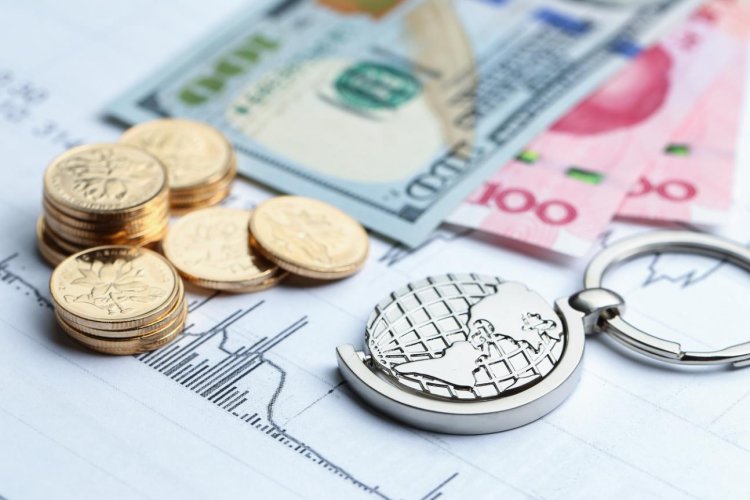5 Common Mistakes People Make When Exchanging Currency
5 Common Mistakes People Make When Exchanging Currency

Did you know that a simple mistake during currency exchange can cost you up to 10% of your money? When it comes to foreign currency exchange in India, many people unknowingly make costly mistakes that can lead to significant financial losses.
Whether you are going abroad, paying for international transactions, or giving money to your family, not knowing if exchange rates and fees can lead to unnecessary losses. To help you from these expensive errors, discover the five most common mistakes while exchanging money and steps on how to avoid them.
The five most common mistakes in Currency Exchange
1. Exchanging Currency at the Last Minute
One of the most common mistakes awaits the last minute to exchange money. The majority of passengers believe that they get the best exchange rate at airports or hotels, yet they have inferior exchange rates and an excessive service charge.
Why It's a Problem:
-
Airport exchange desks and hotels typically provide suboptimal exchange rates, typically 5-10% above the market rate.
-
If in a hurry, you may miss comparing rates and incur unnecessary charges.
How to Avoid It:
-
Plan your currency exchange well in advance.
-
Compare prices offered by banks, online platforms, and licensed money chances.
-
Consider using online currency exchange services in India that allow you to lock in favorable prices before the trip.
2. Ignoring Hidden fees
Many people focus only on exchange rates and ignore further hidden fees and service fees associated with currency exchange.
Why It’s a Problem:
-
Some suppliers advertise the zero commission but compensate by offering poor exchange rates.
-
Transaction fees, service fees or ATM withdrawals can be added and can reduce the amount received significantly.
How to Avoid It:
-
Always request a breakdown of the overall cost, including service charges.
-
Compare the effective rate (after subtracting all charges) to calculate the actual value.
-
Choose banks or money changers that offer transparent exchange rates for foreign currency exchange in India.
3. Falling for Dynamic Currency Conversion (DCC)
Dynamic currency conversion (DCC) is a service provided by traders and ATMs that allows you to pay in your domestic currency instead of local currency abroad. Although this may look practical, DCC often comes with high exchange rates and additional costs.
Why It’s a Problem:
-
DCC providers charge exchange rates, which tend to be far above market rates.
-
You will end up paying 5-7% more than you would have, chosen to pay in the local currency.
How to Avoid It:
-
Always choose to pay in local currency while trading or pulling out cash abroad.
-
Review your receipts when specified during the transaction and reject the DCC.
-
Inform your bank about activating international use on your card to avoid unnecessary conversions.
4. Not Monitoring Exchange Rate Trends
Exchange rates often cause ups and downs due to factors like market demand, geopolitical events, and economic policy. Ignoring these ups and downs can lead to the exchange of currency at a negative price.
Why It’s a Problem:
-
Poor timing can lead to losing a significant portion of your money.
-
A small variation in exchange rates can significantly affect big transactions.
How to Avoid It:
-
Track exchange rate movements with reliable financial websites or mobile apps.
-
Try to use something such as rate alerts or notifications to secure the most favorable exchange rate.
-
If you’re exchanging large amounts, spread the transactions over multiple days to average out the rate.
5. Using Unlicensed or Unregulated Money Changers
In an attempt to find the best prices, some are turning to unlicensed money changers who can offer attractive prices, but work without the right authority.
Why It’s a Problem:
-
Transactions with irregular suppliers are risky and can achieve counterfeit currency.
-
There is no guarantee of fair practice, which can make you sensitive to fraud.
How to Avoid It:
-
Always opt for authorized money changers or licensed financial institutions for currency exchange India.
-
Check the credentials of the provider before proceeding with the transactions.
-
Use trusted online services that provide secure and regulated facilities for the exchange of currencies.
If you avoid these common errors, the currency exchange is not complex. With adequate planning, knowledge of hidden charges, and a selection of dependable service providers, you can derive the most out of your money. Exchanging foreign currency for travel or business, being well-informed can save you time, money, and avoidable worry. Compare, stay alert, and select trusted channels for currency exchange in India to make the process smooth and easy.
What's Your Reaction?


















.jpg)